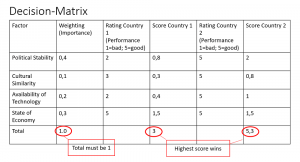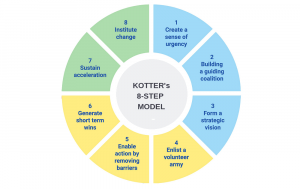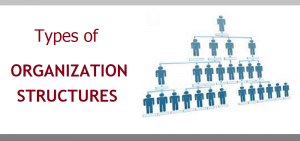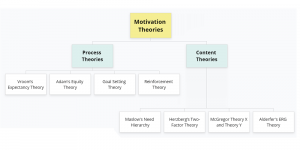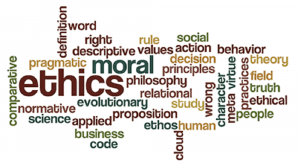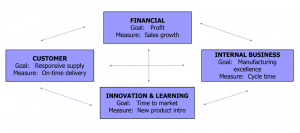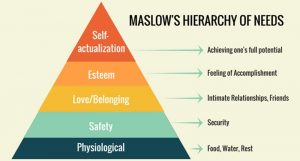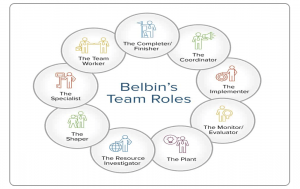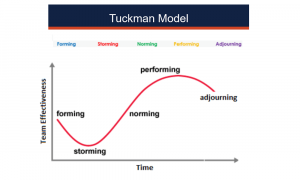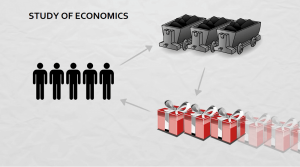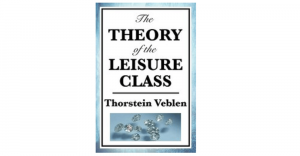The principles of management encompasses concepts and practices related to effective management within organizations. For example, Henri Fayol’s fourteen principles of management lists guidelines for division of work, unity of command, equity, etc. for managing organizations effectively. Here are various concepts related to effective management within firms. An organisation is a social entity that is […]
General Management
Principles of Management by Henri Fayol
French management theorist Henri Fayol developed the concept of the 14 Principles of Management that describe how managers should ideally organize work and manage employees in a business environment. Henri Fayol’s Contribution to Management Henri Fayol is credited with developing one of the earliest comprehensive management theories. His contribution to the field of management science […]
Decision-Making Matrix (Pugh Matrix)
The Pugh Matrix is a decision-making tool that is used to compare multiple alternatives and select the most favourable one. In this method, the various options are evaluated based on several weighted criteria. This is a variation of the L-shaped matrix. This tool is also referred to by many other terms such as decision grid, […]
Organization Culture: Importance, factors and how it can be changed
Culture is gaining more attention in business nowadays as it is known to impact business due its influence on manners, behaviours, business negotiation process, decision making, etc. Due to globalisation, businesses are expanding their operations around the world; as a result, it is important to have understanding of different cultural patterns. Organizational culture refers to […]
Kotter’s 8-Step Change Model Explained
Kotter’s 8-step change model is a change management model that lays down the process for organizations to efficiently implement a new change initiative. Introduction to Kotter’s Change Model Dr. John Kotter had first introduced the model in his book ‘Leading Change’ (1996); the model was then updated and published in the book ‘Accelerate’ (in 2014). […]
Organizational Structure: Types and Importance
An organizational structure is a system set in place, by which work flows within a firm, that helps the firm achieve its goals. Organizational Structure: Types and Importance Here, we take a look at the importance of organisational structure in terms of the overall success of a business. Experts have stressed that key factors have […]
Equity theory of Motivation – Adams (1965) (Process Theory)
As per the equity theory of motivation, when people see fairness and justice around them, they are motivated, and if they see unfairness and injustice around them, they become demotivated. This is how human beings really feel when it comes to fairness. Equity Theory (Adams 1965) suggests that we compare job inputs (effort/experience etc) and […]
Kohlberg and Gilligan theory of moral development: Differences
Key issues in the ‘Kohlberg–Gilligan conflict’ and reasons why Gilligan criticized Kohlberg. Kohlberg’s research is based on the cognitive development theory in psychology adopting a functional perspective on ethical behaviour which assumes that: Individual behaviour is directed by moral beliefs. Moral beliefs enable individuals to understand and evaluate the behaviour of others. 18 year study […]
Balanced scorecard (BSC): Framework to identify and improve internal functions
Balanced scorecard (BSC) is a strategic management performance metric that provides a comprehensive view of the business. In addition to finance measures, it also measures customer satisfaction, internal processes, and the innovation and improvement activities of the organization. Challenges of Traditional Budgeting Several executives felt for a long time that the traditional measures of financial […]
MASLOW’S Need Hierarchy Theory
Maslow’s Need Hierarchy Theory: Abraham Maslow propounded a theory of human motivation. Maslow identified five sets of human needs. The five sets of needs are arranged in a hierarchy of their importance to individuals. Maslow’s Hierarchy of Needs Maslow’s hierarchy of needs includes the following: Physiological needs Safety needs Social needs Esteem needs Self Actualisation […]
Belbin’s Team Role Theory
The Belbin Team Roles theory suggests how to select the right mix of people for a team that will help the team succeed. Every person has unique strengths and behaviour that can facilitate the progress of a team. Belbin’s theory identify behavioural strengths and weaknesses of workers at the workplace. Introduction While every firm desires […]
Tuckman’s theory: Various Stages of Group Development
Tuckman Model: Theory to understand the stages of team formation. This model reveals how teams transform as they go from the initial formation towards the completion of the project. You need a team to do take on bigger things and accomplish things faster. However, not every team works at the highest level of efficiency right […]
Theories of Motivation: Leading and managing people in organizations
Theories of Motivation: Understand how motivation is used to lead and manage people in organizations. What is Motivation Motivation is basically the intention or reason for an individual’s activities and desires. It stimulates a person to do things or behave in a definite way. All employees work towards achieving organisational effectiveness but they all have […]
CSF, KRI and KPI Explained
Importance and implementation of key success metrics (CSFs, KRIs, KPIs) in Analytics. In order to compete, more businesses are finding it vital to monitor the various business processes so that performance can be measured and improved upon. Acronyms like Critical success Factors (CSFs), Key result indicators (KRIs), and key performance indicators (KPIs) are increasingly being […]
Solow Model of Economic Growth
The Solow Model of economic growth is a model that explains the growth of an economy and suggests that sustained growth in the economy is due to growth in technology and not really due to other factors such as increase in capital and labour. The reason for that is because capital offers diminishing returns in […]
Theory of conspicuous consumption (Thorstein Veblen)
Economist and sociologist Thorstein Veblen studied the relationship between the economy, society, and culture and suggested that a lot of people make purchases to display their status and accomplishments and not really to fulfill their needs. He is best known for introducing the concept of conspicuous (excessive) consumption and conspicuous “leisure” to signal one’s social […]
Types of organizations
Organizations consist of several factors such as functions, people, resources, etc. Differing organisational goals and objectives implies a varying degree of importance on each of these factors, that eventually give rise to different types and structures of organizations. Daft, Murphy and Willmott (2010) identify and discuss the differences between small and large organizations and for-profit […]
Theory of the Firm
The theory of the firm, a microeconomic concept (in neoclassical economics), states that a company’s main goal should be to maximize profits, to create as big a gap between revenue and costs as possible by allocating resources to maximize net profits. The theory of the firm influences decision-making in several business areas, including resource allocation, […]
What is Organisational Lifecycle?
Every organization goes through different phases; an organizational life cycle divided into the following phases: Existence / Start-up (or Birth): Early days of the company. Survival: Organizations try to expand their business (try to achieve growth) Maturity phase: Company reaches the peak from where it becomes difficult to grow further. Renewal Phase: Companies may reinvent […]
Corruption Theories
Characteristics of Corruption: Occurs and takes on various forms and functions in different contexts. Petty vs Grand Corruption Collusive vs Extortive “Corruption is indeed one of the greatest evils of our time. Corruption rewards those who do not play by the rules and also creates a system of distortion and diversion thereby destroying all efforts […]


